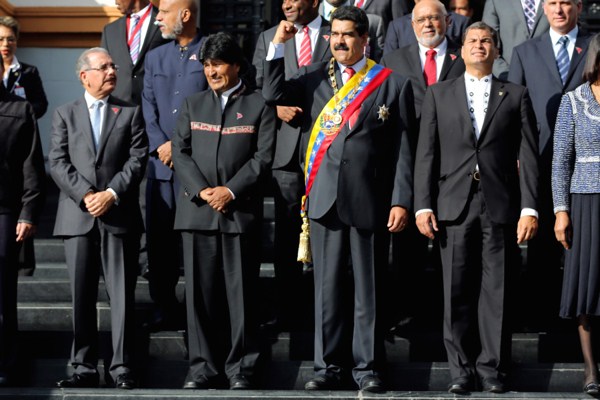Editor's Note: This is the second of a two-part briefing on Bolivia’s presidential election. Part I looked at domestic issues contributing to President Evo Morales’ success. Part II examines the regional significance of the Morales model of governance.
When Bolivian President Evo Morales first won election in 2005, he quickly became one of the harshest critics of U.S. hemispheric policy. His brand of anti-American rhetoric fit in naturally with that of then-Venezuelan President Hugo Chavez, so it was not surprising that under Morales, Bolivia became a member of the Bolivarian Alternative for the Americas (ALBA), the coalition of leftist governments conceived and created by Chavez in 2004. Along with Chavez, Morales represented what many in Washington at the time considered a troubling trend: the emergence of a neo-populist Latin American left intent on curtailing the influence of the United States in the region.
Now, with Morales poised to win a third term in office Sunday, and a year and a half after Chavez’s death, ALBA has lost much of its force, thanks largely to the loss of Chavez’s leadership and Venezuela’s relentless economic and political crises. Its decline means Washington has little reason to worry about a coordinated effort to defy and undermine the U.S. role in Latin America.

